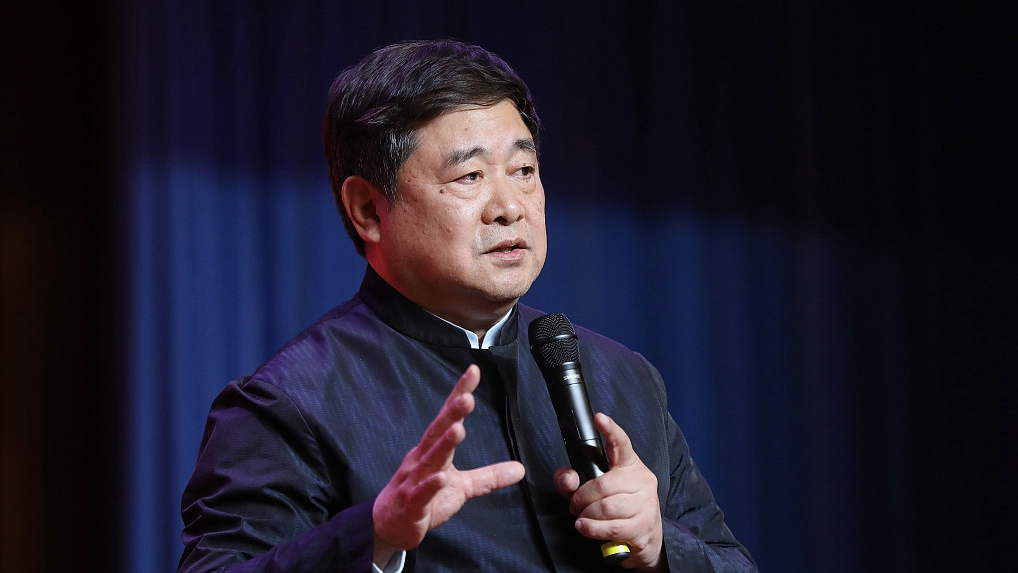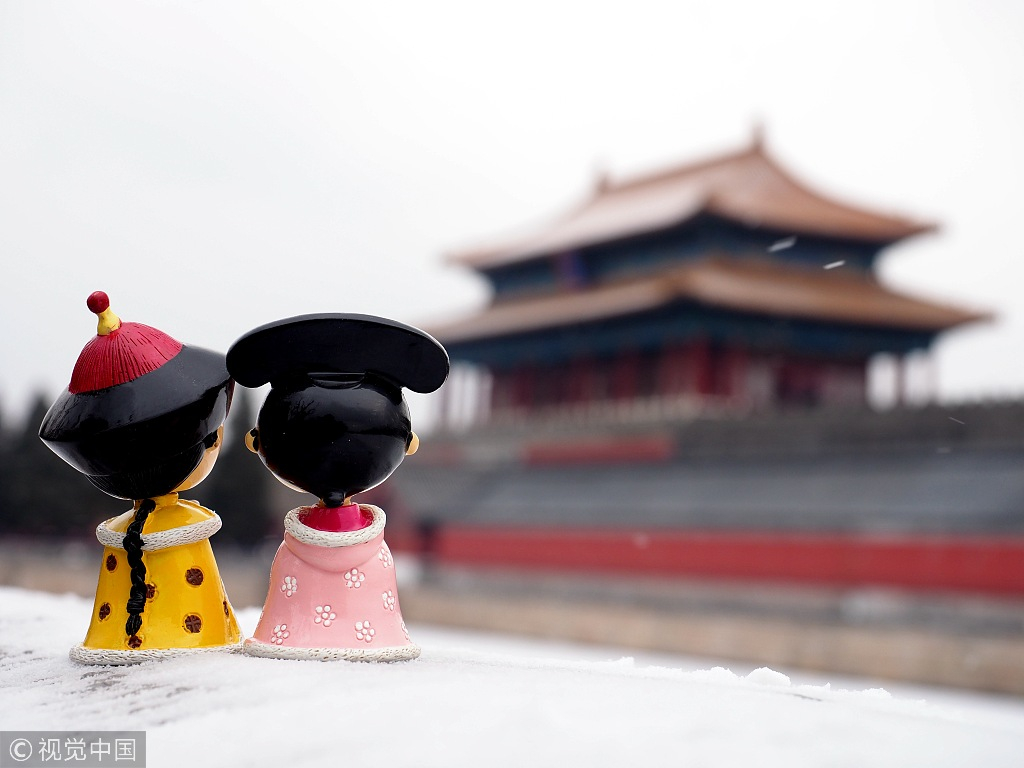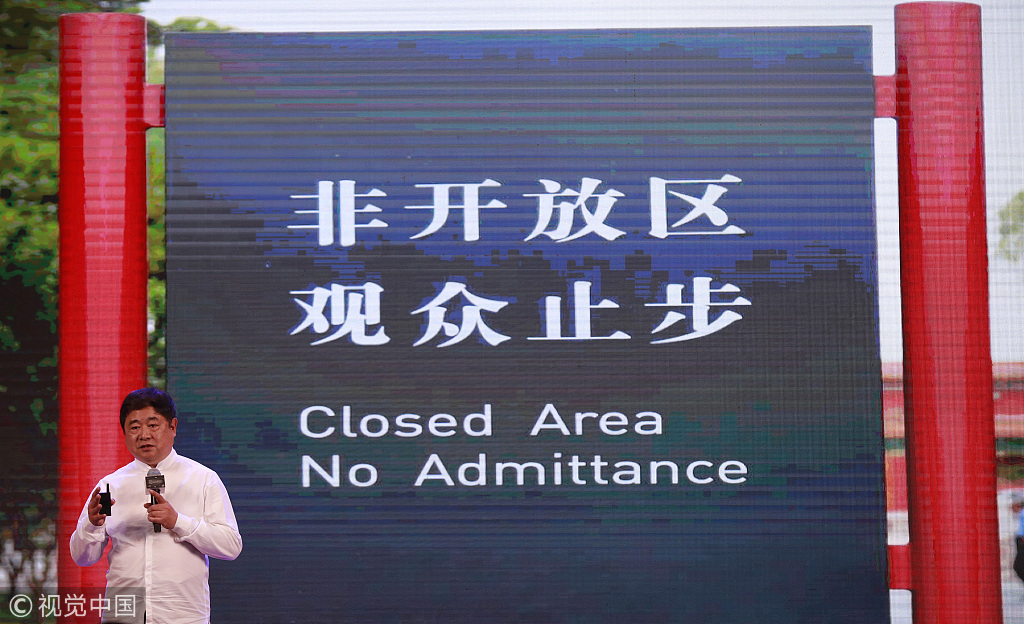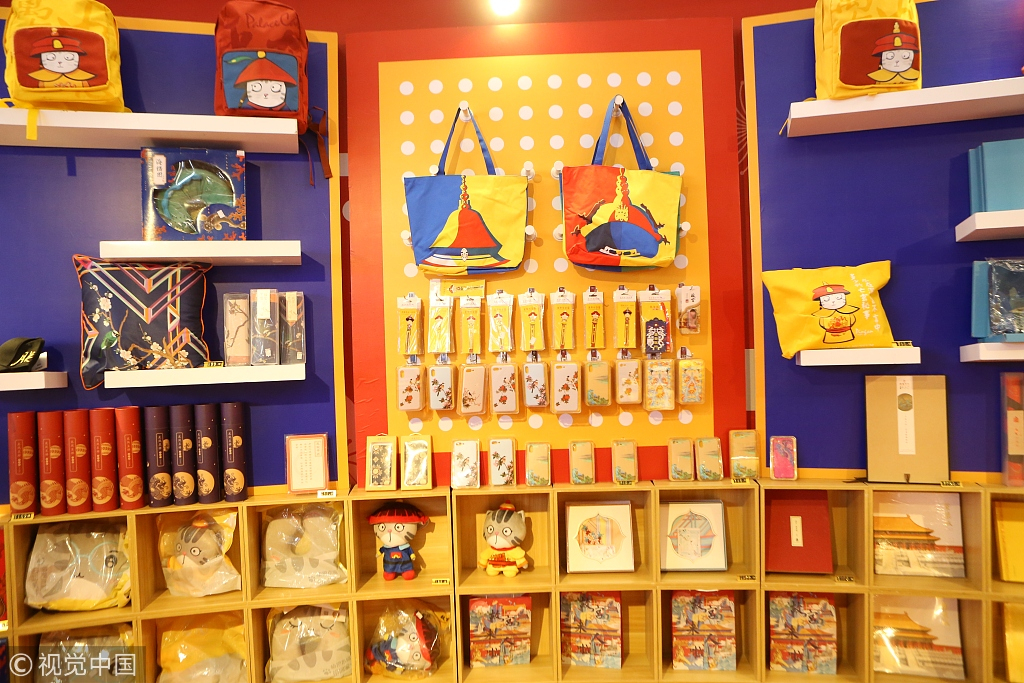
Art
20:20, 21-Feb-2019
Respecting history: The man behind Palace Museum's new look
Updated
20:57, 21-Feb-2019
By Qi Jie
02:37

The Palace Museum, also known as the Forbidden City, has become increasingly neat, well-managed, cordial and popular in recent years. Behind the obvious achievements is Shan Jixiang, the museum's director.
Being no longer just a scenic spot, this 600-year-old treasure house can now interact and inform visitors in its unique way.
Shan shared his experience during the Yabuli Forum in northeast China's Harbin City earlier this week.

Two dolls, an emperor and his consort, "look" at the Palace Museum, February 14, 2019. /VCG Photo
Two dolls, an emperor and his consort, "look" at the Palace Museum, February 14, 2019. /VCG Photo
The Palace Museum is the largest and most complete ancient palace complex, not to mention the most visited
museum in the world. However, this was not enough in the eyes of Shan seven years ago when he assumed his post.
"What I saw was that in nearly three-fourths of the Forbidden City, there were signs that said 'Section Closed. Visitors Stop.' I also saw that 99 percent of the relics were kept in the warehouses. I saw tourists following a tour guide without having any chances to enjoy what they wanted to see. I told myself that this had to be changed."

Shan Jixiang shares his experience of being not admitted by some areas in the Palace Museum in Sanya, Hainan Province, January 13, 2019. /VCG Photo
Shan Jixiang shares his experience of being not admitted by some areas in the Palace Museum in Sanya, Hainan Province, January 13, 2019. /VCG Photo
Shan did as he promised, and today, the changes are obvious. Tourists don't
have to stand in long queues for tickets. There are elegant benches inside the museum for tourists to rest, and more "forbidden
areas" are now accessible to the public.
In 2018, the number of visitors to the Palace Museum surpassed 17.5 million.
According to Shan, the museum should give visitors from home and abroad the care and respect they deserve. He also believes that ancient relics should be respected.

Visitors enjoy a digital show at the exhibition "New Year Greetings – Celebrating Spring Festival in the Forbidden City," January 25, 2019. /VCG Photo
Visitors enjoy a digital show at the exhibition "New Year Greetings – Celebrating Spring Festival in the Forbidden City," January 25, 2019. /VCG Photo
"The first time I went to a warehouse for a check, I was scared off, saying 'who's lying down there?' Later I was told that those were the collection of Terra-cotta Warriors and Horses," said Shan.
"How come these precious artifacts were treated so badly? So we carefully reorganized many relics and showed them to the world. And we've decided that we'll showcase all the 1,862,690 collections to the world next year when the Forbidden City celebrates its 600th anniversary."

A temporary souvenir shop authorized by the Palace Museum features dozens of creative souvenirs in Shanghai, January 31, 2019. /VCG Photo
A temporary souvenir shop authorized by the Palace Museum features dozens of creative souvenirs in Shanghai, January 31, 2019. /VCG Photo
Only 40 percent of the Forbidden City in 2014 was open to the public. The number has climbed to 80 percent now.
The Palace Museum enjoys the world's most powerful digital presence, garnering nearly 900 million hits on its website. On top of that, the museum sells billions of souvenirs every year. As Shan put it, this is a management revolution.
(Top Photo: Palace Museum Director Shan Jixiang attends the opening ceremony of the exhibition "New Year Greetings – Celebrating Spring Festival in the Forbidden City," January 7, 2019. /VCG Photo)

SITEMAP
Copyright © 2018 CGTN. Beijing ICP prepared NO.16065310-3
Copyright © 2018 CGTN. Beijing ICP prepared NO.16065310-3